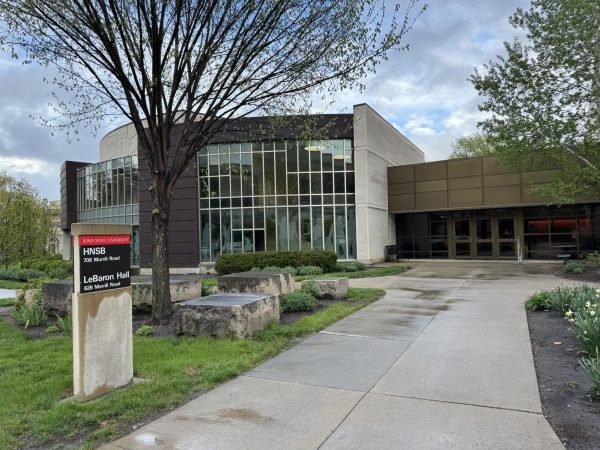Experts say research has unlimited possibilities
July 19, 2001
The tiny biological wonder that has the United States in a heated debate of research funding is actually one of the most promising keys to the future of medicine, experts say.
A stem cell is a cell that hasn’t received a specific duty from the body, meaning they should be able to give rise to a variety of cell and tissue types in an organism, said Don Sakaguchi, associate professor of zoology and genetics.
Harvesting stem cells from embryos is a widely debated issue. However, Sakaguchi said there are several sources for obtaining stem cells other than an embryo. For example, bone marrow, adipose (fat) tissue and placenta tissue all contain viable stem cells.
Sakaguchi said some types of research may benefit from the use of younger tissue, such as embryonic tissue, more than the use of older tissue.
“The potential plasticity for stem cells is thought to be more suitable for some studies,” he said.
The self-renewing trait of a stem cell is a vital aspect in regenerating cells. Various genetic and biochemical signals are responsible for provoking a stem cell to differentiate into other cells, a key in regeneration.
Regenerative medicine is the main focus of stem cell research, Sakaguchi said. He said the stem cell may help in curing afflictions such as degenerative brain disease and it may also be planted into heart tissue. Damaged tissues in the body trigger these tiny stem cells to migrate to the site of injury.
However, a tissue does not have to be injured or damaged for stem cells to work.
“[It is being researched] how they react to cells in terms of healthy vs. damaged or diseased tissue,” Sakaguchi said.
He said researchers are testing the potential of what stem cells are capable of in various environments and how these changing environments influence the reaction of a stem cell.
David Wynes, assistant vice president for research at the University of Iowa, said in general the academic community is in favor of stem cell research.
“The primary reason is current knowledge leads us to believe that stem cells hold enormous potential for future medical treatments,” Wynes said.
He said public funding is a necessity in order to understand the basic biology and the mechanisms which make stem cells function and differentiate into various cells in the adult body.
“It is through this understanding that medical advances will be possible,” he said.
James Bloedel, vice provost for research, said he agrees with this stance.
“Stem cell research offers an entirely new horizon for treating a variety of human conditions and illnesses,” he said.
Bloedel said the performance of this type of research must be done with a tremendous sense of ethical responsibility and under a set of appropriate guidelines.
“The academic community offers an environment in which this type of research can be performed within these constraints,” he said.
















